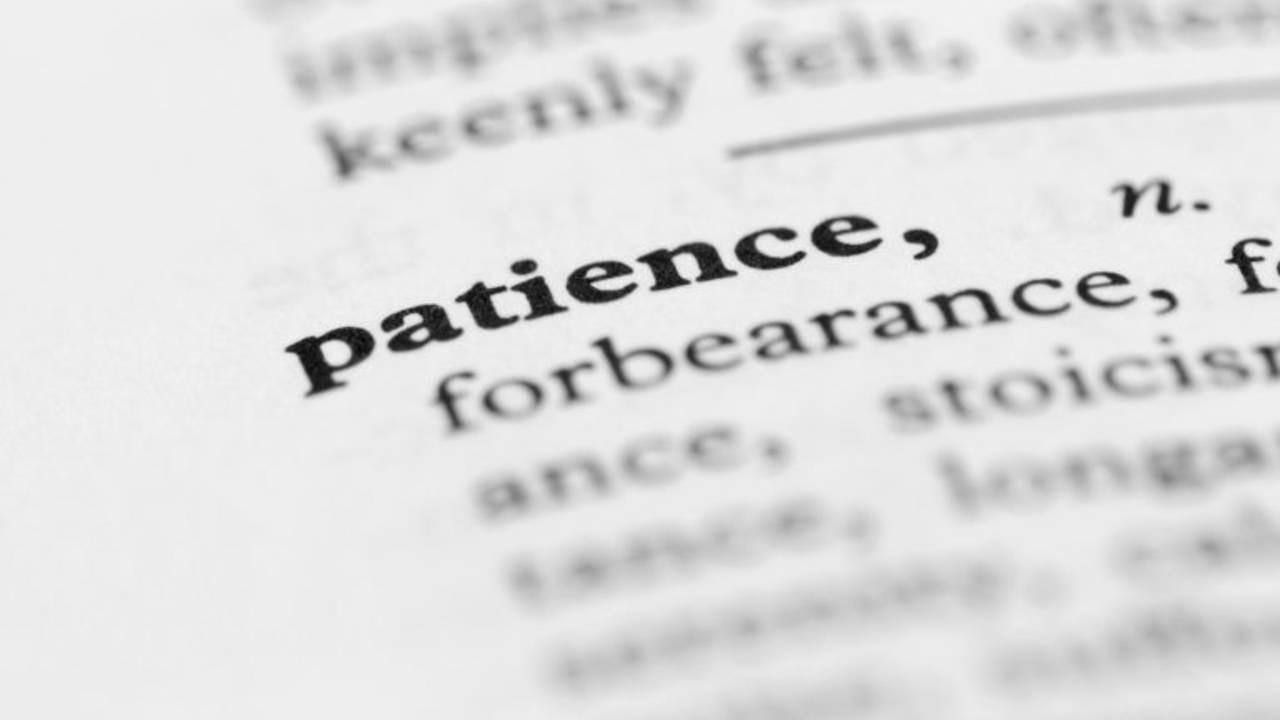How to Exercise More Patience
Sep 11, 2018
Patience is a virtue, they say. If your patience is being tested and tried, it can be hard to see what value you receive from your situation. Being “good for goodness’ sake” may seem like a low return on your investment of frustration, but in reality you gain significant value by exercising patience.
People often confuse patience with apathy or being a wimp, so I looked it up in a thesaurus and found an impressive variety of synonyms – words like composure, endurance, perseverance, poise, tolerance and self-control. None of those words suggest weakness or indifference – and in fact, those two words are actually listed in the thesaurus as antonyms (opposites) of patience!
A misunderstanding of patience can lead to the notion that when a challenge arises, you should simply not respond, but that can cause more problems – unresolved issues, resentment, bitterness, and the expectation that things will never get better. Patience is better characterized as the ability to maintain positive attitudes and actions and make the best of a situation while you are waiting for something to happen or change.
If you react poorly or impatiently when things don’t go your way, you make the situation worse. Accepting the reality that things don’t always happen on your timetable produces peace of mind and reduces your stress levels. You’re much less likely to hurt others by being irritable or angry, and also less likely to experience symptoms such as high blood pressure, headaches, stomach upset or substance abuse. Patience helps you cope with disappointment or frustration and makes it possible for you to become part of the solution instead of part of the problem.
So, how do you put patience into practice? Let’s answer with another question: How much time do you spend waiting? You’re fifth in line at a store; you are trying to get somewhere on time and your spouse isn’t ready; your house hasn’t sold yet; a loved one has been promising for years to get treatment for an addiction; you want to be married and have a family, but you haven’t met the right person… We all spend a lot of time waiting, and the key to practicing patience is asking yourself, “Since _____ isn’t happening right now, what can I be doing that will use the time well or make some progress toward helping it happen?”
Next time you’re waiting in line, text someone you’ve been meaning to contact or take advantage of the opportunity to say something encouraging to the mom in front of you with the fussy toddler. A friend of mine realized that pacing and jingling his keys was not making his wife get ready for church any faster, so now he uses the time to play the piano, which he enjoys (plus she hears the pleasant reminder that he is waiting patiently.)
Bigger things – like serious illness, loss and disappointments – often take true grit to endure. That’s why we use the phrase “exercising” patience. It takes strength and determination to wait patiently. That’s when it’s important to say, “I can’t change __________ right now and it may never change, therefore I choose to ____________ in order to be contented, happy and productive while I wait.” Fill in the blank with thoughts, activities and commitments that improve your life each day.
You can continue to live in constant irritation and frustration or you can choose the calm composure of patience. The value of patience is priceless!
Live, Work and Relate Well!
Dr. Todd
Learn How to Build Unshakeable Self-Confidence Using Scientifically Proven Methods in 30 Days!
Our Confidence in Mind online course unveils how to eliminate embarrassing self-doubt, paralyzing fear, and the crippling voice of the inner critic.
Sign-Up Today!
Stay connected with our newest Blog posts and updates!
Join our mailing list to receive the latest Relate Well Blog posts and updates from our team.
Don't worry, your information will not be shared.
We hate SPAM. We will never sell your information, for any reason.
